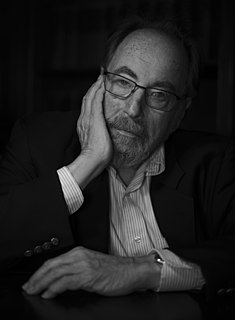A Quote by Sam Kean
Cancer is really a DNA disease... We have these certain genes that prevent our cells from growing out of control at the expense of the body. And it's a pretty good, robust system. But if a couple of these genes fail, then that's when cancer starts, and cells start growing out of control.
Related Quotes
You've got to get away from the idea cancer is a disease to be cured. It's not a disease really. The cancer cell is your own body, your own cells, just misbehaving and going a bit wrong, and you don't have to cure cancer. You don't have to get rid of all those cells. Most people have cancer cells swirling around inside them all the time and mostly they don't do any harm, so what we want to do is prevent the cancer from gaining control. We just want to keep it in check for long enough that people die of something else.
The study of how substances alter gene expression is part of the field of epigenetics. Some chemical exposures appear to turn on and turn off genes in ways that disregulate cell growth and predispose for cancer. From this perspective, our genes are less the command-and-control masters of our cells and more like the keys of piano, with the environment as the hands of the pianist.
Cancer cells have a lot of other things that are really wrong with them, and we should never forget that these are cells that have become deaf to all the signals that the body sends out, such as you can multiply a certain amount, you can be in a certain place in the body, where to stay, where to move, and so on.
A cancer is not simply a lung cancer. It doesn't simply have a certain kind of appearance under the microscope or a certain behavior, but it also has a set of changes in the genes or in the molecules that modify gene behavior that allows us to categorize cancers in ways that is very useful in thinking about new ways to control cancer by prevention and treatment.
If you inhale a millionth of a gram of plutonium, the surrounding cells receive a very, very high dose. Most die within that area, because it's an alpha emitter. The cells on the periphery remain viable. They mutate, and the regulatory genes are damaged. Years later, that person develops cancer. Now, that's true for radioactive iodine, that goes to the thyroid; cesium-137, that goes to the brain and muscles; strontium-90 goes to bone, causing bone cancer and leukemia.
Cancer vaccines are in the future. And they could be very effective. Checkpoint blockade, which is acting your immune system to recognize those cancer cells and kill them is another very promising approach and there have been some checkpoint blockade drugs out in the market now that will release the brake on T lymphocytes, the T lymphocyte is your major killer of tumor cells.



































